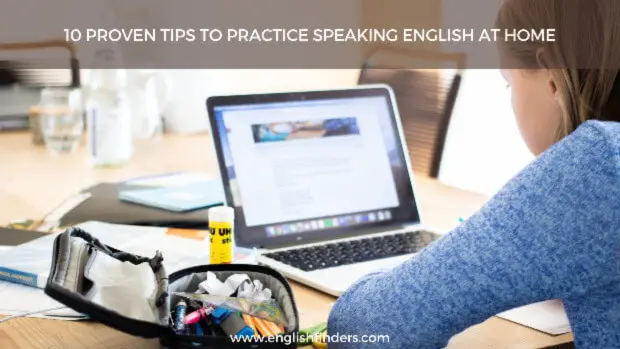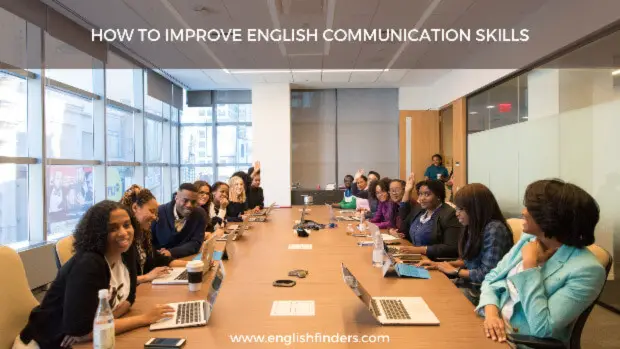Last updated on December 21st, 2024 at 03:35 pm
Interviews are a great way to show you are the best candidate for the job. But how do you get your future boss to think that? Well, first of all, you should tell them who you are.
The job interview is your chance to make a great first impression on potential employers. It’s a chance to showcase your skills, experience, and personality and to convince them that you’re the best candidate for the job. But before you can get into that, you must master the art of introducing yourself in English.
For many job seekers, introducing themselves in a job interview can be a nerve-wracking experience. But fear not because we’re here to help. In this article, we’ll provide you with 10 proven tips to help you introduce yourself confidently and effectively in English.
From crafting the perfect elevator pitch to mastering the art of body language, we’ll give you all the tools you need to impress potential employers and make a great first impression.
How to Introduce Yourself in a Job Interview
Quick Navigation
Follow these ten tips on making a self-introduction in English to help you make an excellent first impression of your interviewer.
1. Start with a confident greeting
Making a strong first impression in a job interview begins with a confident greeting. It establishes the tone for the remainder of the talk and shows the interviewer that you are a confident and capable candidate. A simple smile and solid handshake can go a long way toward conveying your assurance and upbeat attitude.
Use the interviewer’s name when addressing them, and keep eye contact with them during the interview. If you’re meeting them in person, get up and give them a warm grin. If you’re interviewing remotely, test your camera and microphone beforehand and use a professional background and attire.
Remember that the initial few seconds of the interview are the most significant, so make a great first impression. You may start an interview and leave a good first impression on potential employers by greeting them confidently.
2. Introduce Yourself and Your Background
For the interviewer to understand your professional and educational background and decide whether you’re a suitable fit for the position, you must introduce yourself and your background. To effectively communicate your message while introducing yourself, utilize precise and simple wording.
Describe your background, including your schooling, relevant job experience, and any relevant accomplishments or achievements. Include your name, present position, and contact information. Provide particular examples of how you’ve used your skills to succeed in the past and emphasize your skills and how they can benefit the organization.
Customizing your introduction to the position and the firm is crucial, highlighting any experiences or qualifications that are especially relevant to the role.
Ensure to avoid rambling or oversharing in your introduction and keep it concise and to the point. A skillfully written introduction can lay the groundwork for a fruitful interview and demonstrate to potential employers that you are a qualified and self-assured candidate.
3. Use Clear and Concise Language
You must introduce yourself in clear, simple words at a job interview. It helps express your message effectively and ensures the interviewer understands your qualifications and experience. Avoid utilizing slang or technical terminology that could mislead the interviewer while employing language.
Instead, utilize plain language that effectively communicates your point. Being too formal or casual can undermine your trustworthiness, so be careful how you phrase things. To give the interviewer a chance to process your message, talk clearly and slowly while pausing between words. Asking for clarification is preferable to assuming or giving erroneous information if you are unsure about a term or concept.
Remember that your introduction aims to demonstrate to the interviewer that you are a qualified and confident applicant and that attaining that objective requires utilizing clear and simple language.
4. Highlights Your Strength and Achievements
An essential component of introducing oneself in a job interview is highlighting your achievements and skills. The interviewer will be able to comprehend your professional past and how it connects to the position you seek. While addressing your talents and successes, it’s crucial to be specific and provide instances that demonstrate your ability.
Examples are achievements from prior employment, academic success, or volunteer work. The interviewer may be more persuaded about how you could benefit the organization if you highlight your accomplishments and skills in a manner that is pertinent to the position for which you are applying.
Include abilities that are especially pertinent to the job in your discussion, and give concrete examples of when you’ve utilized them to succeed. You may show the interviewer that you have the knowledge and expertise required to succeed in the role by emphasizing your strengths and achievements confidently and straightforwardly.
5. Be Passionate and Enthusiastic
In a job interview, showing enthusiasm and passion are excellent ways to make an impression. It demonstrates to the interviewer that you have the motivation and drive to succeed and are genuinely interested in the job and the organization. Be careful to show your passion for the subject and your work while describing your experience and credentials.
This can be talking about tasks you’ve completed that you found fascinating or expressing your enthusiasm for recent advancements in the sector. Maintaining a sense of professionalism while remaining passionate to prevent coming across as too ecstatic or desperate is crucial. Always talk with conviction and confidence, and express your passion with positive body language.
An optimistic outlook can go a long way in helping you stand out from other applicants and make a favourable impression on potential employers. You may show that you are committed and dedicated to the job and improve your chances of getting the job by expressing your enthusiasm and love for the role and the organization.
6. Get rid of filler words like um, uh, or like
If you’re often left struggling for words, it may be because of filler words like um and uh. These filler words are prevalent, but they can cause people to lose their attention span when they speak. They also make you sound less confident and intelligent because they signify an abrupt halt in your speech as you search for another word that isn’t as blank as um.
Many people use them unconsciously, making them all that more important to eliminate from your vocabulary. Instead of saying um, pause before speaking. This gives you time to think about what you want to say next and ensures that when you talk again, it will be concise and well-thought-out.
7. Ask if they want more info
One common mistake people make when introducing themselves is that they launch into their entire background—family, education, and everything else. That’s not necessarily what you want to do during an interview. Instead, briefly tell them what you’re looking for in a job and then ask if they want more info.
Let them decide whether or not they want to hear your life story; it might save you some time down the road! This can also serve as an effective way of gauging interest—if they don’t ask any questions or seem uninterested after you give them basic info, it may be better for both parties if you move on.
8. Be Aware of Your Body Language
Making a good impression in a job interview requires being conscious of your body language. It can reinforce your competence and credibility or cast doubt on your competence, interest, and professionalism. During introductions, be mindful of your posture and try not to slouch or fidget. While maintaining eye contact, avoid staring at the interviewer because this might be unsettling.
Use facial expressions and hand gestures to underline your ideas and show enthusiasm, but don’t go overboard. Do not cross your arms or legs; this can be interpreted as defensive or closed off. Instead, maintain a relaxed, open posture with your arms and hands and lean slightly to demonstrate your interest in what is being said.
Be mindful of your voice tone and speaking rate, and refrain from speaking excessively quickly or quietly. Remember that your body language may convey just as much as your words, and by being conscious, you can convey professionalism and confidence to prospective employers.
9. Ask questions to show interest (not as an interview question!)
It’s not enough to introduce yourself; you want your interviewer or new colleagues (or friends) to be interested in who you are and what you can do. Asking good questions is a great way to show that interest and set yourself apart from other candidates/newcomers.
It also opens up opportunities for conversation, so you have something more interesting than small talk with which to connect. A self-introduction doesn’t have to be long, but asking intelligent questions will get people interested in who you are and help them remember who you are.
By asking questions, you show interest and make sure they feel comfortable talking with you. Keep the questions simple, basic, and relevant. Here are some open-ended starter questions:
- What do I need to do well in my role?
- How would you describe your company’s culture?
- What does success look like for me here?
The interviewer may ask you these most common questions:
- Tell me about yourself.
- What do you like to do in your free time?
- What’s your favourite book/movie/song?
- Who’s your role model?
- How long have you lived here?
- What kind of work did you do before?
- Have any pets (or siblings)?
- Where are you from originally?
- Do you like it here so far (in the company town)?
10. Practice makes perfect
Practice self-introductions with friends and family. Start by saying your name, then add some simple information about yourself (e.g., my name is Jesse, I’m from New York, and I like Thai food) before going more in-depth (e.g., I was born here but grew up there).
If you get stuck or nervous, try using an opening line like: I’m not very good at making small talk; what do you think of [current event]? Don’t be too hard on yourself — it will probably take several tries before you feel comfortable enough!
Also, don’t forget your strengths – having confidence is key! If an interviewer likes what they hear and see during your self-introduction in English, you might have just landed an interview (or more!)
Self-introductions are a crucial part of any job interview. Whether you are asked to give an opening statement or introduce yourself, it’s essential to do so with confidence and style. Following these ten tips ensures that your introduction will wow your potential employer and win you that dream job!
You may like these useful links:
- 10 Proven Methods To Learn English At Home
- 10 Reliable Essay Writing Tips That Will Get You Accepted
- 10 Simple Ways to Prepare for IELTS at Home
- 7 Best Punctuation Checkers for Free
- 8 Professional Business Email Writing Tips

Azizul Hakim is the founder & CEO of englishfinders.com. He is a passionate writer, English instructor, and content creator. He has completed his graduation and post-graduation in English language and literature.




